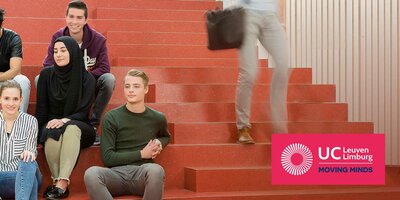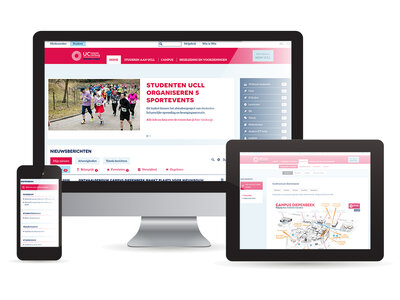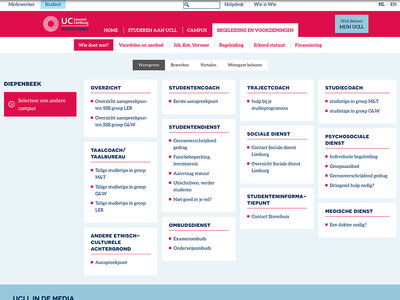In order to develop the new intranet, we obviously needed to know what UCLL wanted and what had to change. UCLL wanted a single website for both students and staff, but it had to be possible to shield content for certain target groups. For example, UCLL wanted some of the content on the website to be only available to staff members, but the remaining content had to be shared with all users. An additional challenge was that an important part of the website also had to be available in two languages: Dutch and English.

Refreshed intranet with Drupal for UCLL
With more than 14,500 students and 1,700 employees, Hogeschool UCLL -or University Colleges Leuven-Limburg- is one of the largest providers of higher education in Flanders. It offers thirty professional bachelor's programmes on ten different campuses in Limburg and Flemish Brabant. UCLL has long been a loyal customer of Calibrate. Their public website has also been developed by us. UCLL now thought it was time to update that intranet. We overhauled the intranet in terms of concept, performance and look-and-feel, and created an updated intranet with Drupal.

Goal
"UCLL was faced with a major challenge to carry out a thorough facelift of the existing intranet for staff and students in just a few months. We sought and found at Calibrate a solid, professional and technically very thorough support from our internal developers",
said Dirk Fabré, responsible ICT Application and development team UCLL.

Unique pages per user
The intranet is the platform where students and staff can find all their personal data. We use an application programming interface (API) to retrieve data from each specific user when they log in. These consist of a number of standard things, such as his/her campus, first and last name, education... These data ultimately determine what a user sees as standard on the website.
In theory, there is only one menu. But the urls in the menu automatically adapt to the user's settings. Everyone gets to see the same menu, but with different urls (depending on the function, campus and training of the user). The tricky part of this story is that each user gets to see different content on the overview page. To prevent the caching mechanism from showing information from the wrong campus or training to a user, we have devised a technically ingenious system together with UCLL that uses DrupalFileCache and Authcache. Here we cache on the different roles and per individual. The large blocks are per role, the dynamic - and therefore unique - blocks are cached per user. In this way, each page is unique for each person and yet loaded quickly.
For example, a student at the Diepenbeek campus will first see information about that campus on the website under 'Campusinfo'. As a user, however, you can manually switch between campuses in order to view the information from the other campuses. The news overview also adapts to the needs of the user. You only get to see information about your course and its campus. Here, too, you can manually add extra things and set up to see news from other programmes or campuses.
